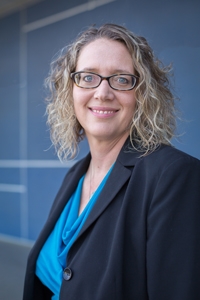Scholars and educators alike believe raising expectations leads to higher achievement and self esteem among adolescents. But new research from the University of California, Merced, shows that when a young woman’s achievement level doesn’t live up to those expectations, the result can be an increase in risky behaviors.
Sociologist Irenee Beattie, the lone author on the study published recently in the journal Sociological Perspectives, said she was surprised to find the converse was also true: Young women whose expectations were lower than their actual achievement level showed a similar propensity toward risky behavior, specifically having unprotected sex during adolescence.
 When those educational expectations were more congruous with academic achievement, the young women were significantly less likely to engage in unprotected sex.
When those educational expectations were more congruous with academic achievement, the young women were significantly less likely to engage in unprotected sex.
“There’s an important debate about educational expectations and their role in adolescent risk-taking,” Beattie said. “Teenagers get the message that everyone should plan to go to college — this idea can have many benefits, but it could be detrimental if not also paired with the skills and knowledge to help them make that dream a reality.”
For her study, Beattie used data from the National Educational Longitudinal Study of 1988, which surveyed a nationally representative sample of eighth-graders and followed up with the same students in 1990, 1992, 1994 and 2000. The full study includes about 20,000 people; Beattie’s study looked at a subset of about 5,000.
Beattie — a professor with the School of Social Sciences, Humanities and Arts and the Health Sciences Research Institute — used the survey responses to determine the age at which young women first reported having unprotected sex, and combined that with responses about their educational aspirations and their achievement on assessment tests.
Her results showed a clear correlation — at any survey point where subjects showed a mismatch between expectations and achievement, they were more likely to have unprotected sex — and she suspects the same would likely be true for other risky behaviors like smoking.
One common predictor of risky behaviors is socioeconomic status — people who fall lower on that scale tend to take more risks in adolescence. But after accounting for the effect of mismatched expectations and achievement, the differences between people from varying socioeconomic backgrounds vanished, Beattie said.
“This suggests that a key reason women from lower socioeconomic backgrounds have higher rates of sexual risk-taking is because they are more likely to have college expectations that are mismatched with their achievement,” she said.
Beattie said her study corroborates recent findings from an entirely different field — neuroscience — that the decision to engage in a risky behavior is not a rational, cost-benefit analysis.
“I think that’s really compelling,” she said. “I’m looking at people in the real world and finding similar things to what they’re finding in the lab.”
The study calls into question the typical approach to sex education in schools, which relies on a rational action model focused on educating adolescents about the potential costs of unprotected sex — and assumes that raising their educational expectations will buffer them from taking risks.
Rather, Beattie’s findings bolster calls from developmental psychologists, neuroscientists and others to incorporate aspects of students’ social, emotional and educational lives into sex education curricula. She hopes further research will shed more light on the variety of factors that lead to risk-taking among adolescents.
“I have other research showing that the level of classes students take has effects on non-cognitive outcomes like teen pregnancy, welfare receipt and early work experience,” Beattie said. “We need to pay attention to things like the mismatch between educational expectations and achievement in order to think more holistically about how schools matter.”
By James Leonard, UC Merced Communications

